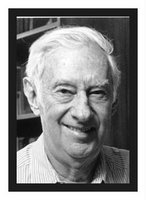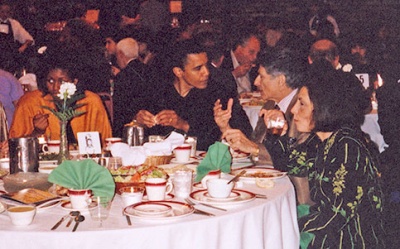Difference between revisions of "User:Barack Obama"
Jump to navigation
Jump to search
| Line 245: | Line 245: | ||
:''Many progressive organizations have thrown their support to Obama, including the Sierra Club and League of Conservation Voters. In its endorsement, Citizen Action/Illinois praised Obama’s 96 percent voting record on consumer issues. President William McNary said Obama “will be a strong voice in Washington on behalf of working families.''” | :''Many progressive organizations have thrown their support to Obama, including the Sierra Club and League of Conservation Voters. In its endorsement, Citizen Action/Illinois praised Obama’s 96 percent voting record on consumer issues. President William McNary said Obama “will be a strong voice in Washington on behalf of working families.''” | ||
| − | |||
| − | |||
| − | |||
| − | |||
| − | |||
| − | |||
| − | |||
| − | |||
| − | |||
| − | |||
| − | |||
| − | |||
| − | |||
| − | |||
| − | |||
| − | |||
| − | |||
| − | |||
| − | |||
| − | |||
| − | |||
| − | |||
| − | |||
| − | |||
| − | |||
| − | |||
| − | |||
| − | |||
| − | |||
| − | |||
| − | |||
| − | |||
| − | |||
| − | |||
| − | |||
| − | |||
| − | |||
| − | |||
| − | |||
| − | |||
| − | |||
| − | |||
| − | |||
| − | |||
| − | |||
| − | |||
| − | |||
| − | |||
| − | |||
| − | |||
| − | |||
| − | |||
| − | |||
| − | |||
| − | |||
| − | |||
| − | |||
| − | |||
| − | |||
| − | |||
| − | |||
| − | |||
| − | |||
| − | |||
| − | |||
| − | |||
| − | |||
| − | |||
| − | |||
| − | |||
| − | |||
| − | |||
| − | |||
| − | |||
| − | |||
| − | |||
| − | |||
| − | |||
| − | |||
| − | |||
| − | |||
| − | |||
| − | |||
| − | |||
| − | |||
| − | |||
| − | |||
| − | |||
| − | |||
| − | |||
| − | |||
| − | |||
| − | |||
| − | |||
| − | |||
| − | |||
| − | |||
| − | |||
| − | |||
| − | |||
| − | |||
| − | |||
| − | |||
| − | |||
| − | |||
| − | |||
| − | |||
| − | |||
| − | |||
| − | |||
| − | |||
| − | |||
| − | |||
| − | |||
| − | |||
| − | |||
| − | |||
| − | |||
| − | |||
| − | |||
| − | |||
| − | |||
| − | |||
| − | |||
| − | |||
| − | |||
| − | |||
| − | |||
| − | |||
| − | |||
| − | |||
| − | |||
| − | |||
| − | |||
| − | |||
| − | |||
| − | |||
| − | |||
| − | |||
| − | |||
| − | |||
| − | |||
| − | |||
| − | |||
| − | |||
| − | |||
| − | |||
| − | |||
| − | |||
| − | |||
| − | |||
| − | |||
| − | |||
| − | |||
| − | |||
| − | |||
| − | |||
| − | |||
| − | |||
| − | |||
| − | |||
| − | |||
| − | |||
| − | |||
| − | |||
| − | |||
| − | |||
| − | |||
| − | |||
| − | |||
| − | |||
| − | |||
| − | |||
| − | |||
| − | |||
| − | |||
| − | |||
| − | |||
| − | |||
| − | |||
| − | |||
| − | |||
| − | |||
| − | |||
| − | |||
| − | |||
| − | |||
| − | |||
| − | |||
| − | |||
| − | |||
| − | |||
| − | |||
| − | |||
| − | |||
| − | |||
| − | |||
| − | |||
| − | |||
| − | |||
| − | |||
| − | |||
| − | |||
| − | |||
| − | |||
| − | |||
| − | |||
| − | |||
| − | |||
| − | |||
| − | |||
| − | |||
| − | |||
| − | |||
| − | |||
| − | |||
| − | |||
| − | |||
| − | |||
| − | |||
| − | |||
| − | |||
| − | |||
| − | |||
| − | |||
| − | |||
| − | |||
| − | |||
| − | |||
| − | |||
| − | |||
| − | |||
| − | |||
| − | |||
| − | |||
| − | |||
| − | |||
| − | |||
| − | |||
| − | |||
| − | |||
| − | |||
| − | |||
| − | |||
| − | |||
| − | |||
| − | |||
| − | |||
| − | |||
| − | |||
| − | |||
| − | |||
| − | |||
| − | |||
| − | |||
| − | |||
| − | |||
==References== | ==References== | ||
Revision as of 21:59, 16 March 2011
Barack Hussein Obama (born August 4, 1961) is the 44th President of the United States of America and a former Senator representing Illinois.
External links
- ↑ Jump up to: 1.0 1.1 1.2 1.3 1.4 Barack Obama on Biography.com
- ↑ NewsMax.com: Obama 'Lying' About Muslim Past, Expert Says, Oct. 9, 2008
- ↑ Washington Post: The Ghost of a Father, Dec. 14, 2007
- ↑ TIME Magazine: Barack Obama: My Spiritual Journey, Oct 16, 2006
- ↑ Times Live: Obama’s remarks at the annual prayer meeting, Feb. 5, 2009
- ↑ New York Times: Barack Obama's search for faith, April 30, 2007
- ↑ New York Times: First Black Elected to Head Harvard's Law Review
- ↑ Director Blue blog: Exclusive transcript: Obama at Occidental 'was looking forward to an imminent... revolution, where the working class would overthrow the ruling class, Oct. 23, 2010 (accessed on Nov. 8, 2010)
- ↑ Jump up to: 9.0 9.1 MAKING IT: How Chicago shaped Obama, New Yorker, July 21, 2008
- ↑ http://www.salon.com/opinion/feature/2008/01/14/obama/index.html
- ↑ New Ground 58, May - June, 1998
- ↑ http://www.newyorker.com/reporting/2008/07/21/080721fa_fact_lizza?currentPage=all
- ↑ http://www.chicagodsa.org/ngarchive/ng86.html
- ↑ http://www.newyorker.com/reporting/2008/07/21/080721fa_fact_lizza?currentPage=all
- ↑ http://www.newyorker.com/reporting/2008/07/21/080721fa_fact_lizza?currentPage=all
- ↑ http://www.newyorker.com/reporting/2008/07/21/080721fa_fact_lizza?currentPage=all
- ↑ http://electronicintifada.net/v2/article6619.shtml
- ↑ LA Times: Allies of Palestinians see a friend in Obama, April 10, 2008
- ↑ World Net Daily: Obama worked with terrorist, Feb. 24, 2008
- ↑ http://www.debbieschlussel.com/3770/the-company-he-keeps-obama-hangs-with-hezbollahs-iranian-agent-imam/
- ↑ People's Weekly World, Jan. 31, 2009
- ↑ http://paeditorsblog.blogspot.com/2008/02/seiu-backs-obama.html
- ↑ http://paeditorsblog.blogspot.com/2008/02/seiu-backs-obama.html
- ↑ AllAfrica.com: Kenya: Obama Told U.S. Envoy to Back Draft, July 22, 2010 (accessed on August 12, 2010)
- ↑ Jump up to: 25.0 25.1 Judicial Watch: Judicial Watch Announces List of Washington's “Ten Most Wanted Corrupt Politicians” for 2010, Dec. 2010 (accessed on Dec. 22, 2010)
- ↑ NY Times: Who's Bitter Now?, April 17, 2008 (accessed on August 12, 2010)








